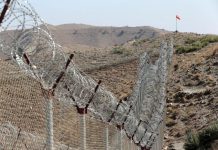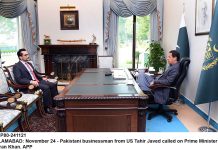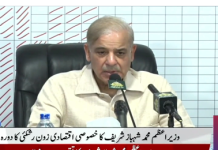ISLAMABAD: The Supreme Court Bar Association (SCBA) on Thursday condemned the would-be extension of mil
itary courts.
The association urged the stakeholders, including political parties and civil society to oppose the move, terming it against the nature of law as well as against the essence of administration of justice.
SCBA President Rasheed A Rizvi asked the stakeholders to resists the extension of mil
itary courts as they do not provide an opportunity of fair trial to the accused.
Talking to reporters, he predicted that like past in 1992 the experience of such courts would not yield fruitful results adding that such courts had not provided an opportunity of fair and transparent trial envisaged under Article 10A.
Rizvi said that unless and until prosecution, intelligence agencies and investigation agencies we
re not strengthened, the menace of terroris
m could not be subdued.
“Cosmetic convictions by the mil
itary courts cannot resolve the issue of terrorism,” he said.
Rizvi a
lso said that mil
itary courts had denied the right of an appeal to the accused which was violation of due process of law.
He said that if an appeal was filed with the chief of army staff and after its rejection, the accused was hanged the very next day which was severe injustice with the accused, adding that any court of law was required to wait for the disposal of an appeal.
Agreed with the Quetta Inquiry Commission Report authored by Justice Qazi Faez Esa, he said that after the incidents of terrorism in Quetta, the prime minister and chief ministers had visited the province but Interior Minister Chaudhry Nisar, who was responsible for security, had not visited the province so far.
He further said that the authorities concerned when could not control the situation at 7 to 8 kilometer Saryab Road in Quetta, how would they be able to control the incidents of terrorism in the whole country.
Instead of giving extension to the mil
itary courts, it would be better to introduce reforms for the improvement of judicial system, Rizvi said, adding that right or wrong but ultimately terrorists were the followers of an ideology which could not be defeated by mil
itary courts.
He also opposed the act of Pakistan Tehreek-e-Insaf-led provincial government in Khyber Pakhtunkhwa of releasing funds to Darul Uloom Haqqania.
“Unless the ‘Garrison Republic of Pakistan’ would not be converted into true ‘Islamic Republic of Pakistan,’ the country would continue to face the menace of terrorism,” he emphasized.
Mil
itary courts were established in the country through a constitutional amendment after a deadliest terrorist attack on Army Public School in Peshawar in December, 2014.
These courts were established in 2015 for a period of two years and they we
re ceased to function in January 2017 upon expiry of its two-year term.
The amendment was challenged in the apex court, however, the court had declared the amendment lawful ruling that the convictions would be subject to judicial reviews.
Subsequently, most of the death sentences awarded by mil
itary courts were challenged in Supreme Court mainly on the grounds that the convicted persons we
re not given the right to fair trial and corum-non-judice.













